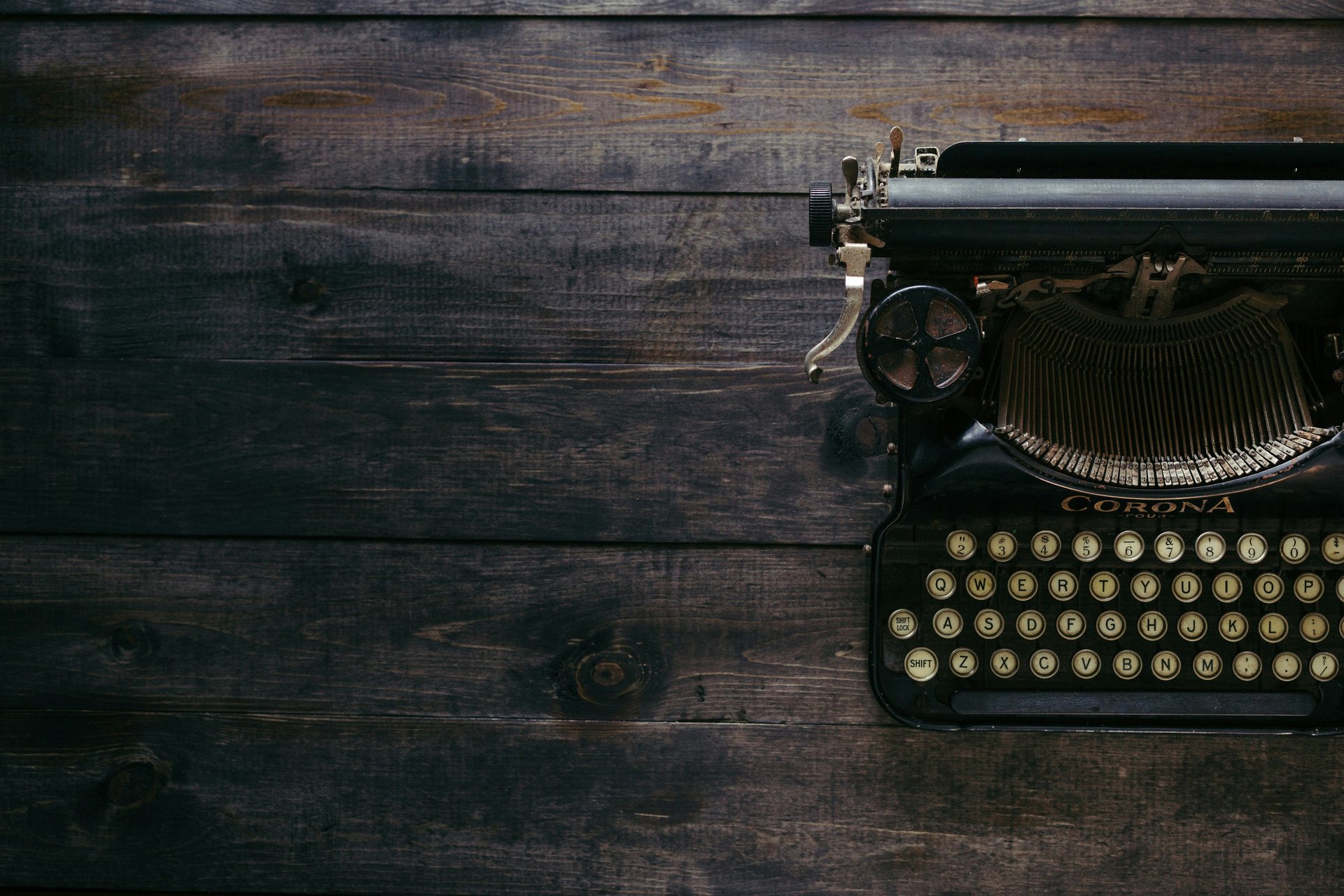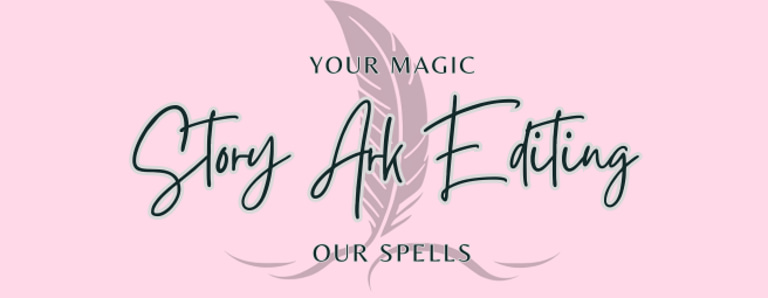
Finding Your Editorial Soulmate: How to Find the Right Editor for You and Your Manuscript
Are you on your quest to find the ideal book editor? Dive into this fun guide that links the search for an editor to dating! Discover tips on spotting red flags, understanding different editing styles, and knowing when you've found "the one." Perfect for writers ready to turn their manuscript into a masterpiece!
Kriti Tripathi
10/10/20249 min read


Finding Your Editorial Soulmate: How to Find the Right Editor for You and Your Manuscript
They say finding the right editor is like finding a soulmate. Okay, no one actually says that, but they should. The similarities are uncanny. From awkward first impressions to figuring out long-term compatibility, finding an editor who truly gets you—and your manuscript—can be just as nerve-wracking as searching for love.
So, you’ve finished writing your book—cue the confetti, the happy dance, or maybe even a celebratory tear (or a full-on ugly cry, no judgment!). But once that high fades, reality hits—your manuscript needs editing. And finding the right editor? Well, it’s a rollercoaster. Some editors may ghost you, others might nitpick your grammar to death (enough with the “whom” already!), and then there are those who might leave you hanging midway through the process (well, that's a heartbreak for sure!). But when you find the one? Trust me, it’s pure magic.
So, grab a coffee (or a glass of wine — since this is going to get real), and let’s dive into how to navigate the chaotic dating scene . . . I mean, the editorial scene.
1. Knowing the Types of Editors: What Kind of Editorial Partner Are You Looking For?
Before you go swiping right on editorial profiles, you need to figure out what kind of editor you're actually looking for. It's like defining your relationship type—are you into the long-term commitment of developmental editing or the quick fling of proofreading? Each type of editor brings something different to the table, just like different partners come with their own unique traits.
Developmental Editor: The Committed Partner
If you’re in it for the long haul, you’ll want a developmental editor. Think of them as the committed partner who’s all about the big picture. They’ll invest time and energy into understanding your manuscript’s soul, helping you refine its structure, character arcs, and emotional depth. They’re like that person who encourages you to chase your dreams, even when the road gets bumpy. With a developmental editor, you can expect regular check-ins and lots of constructive feedback—definitely not a casual fling!
Line Editor: The Engaging Conversationalist
Next up is the line editor, your engaging conversationalist. This partner knows how to keep the dialogue flowing and the chemistry alive. They’ll work closely with you to enhance the style and tone of your manuscript, ensuring it reads smoothly and keeps your audience hooked. Think of them as the one who knows just the right topics to spark an engaging conversation—making every interaction enjoyable and memorable.
Copyeditor: The Grammar Nerd
Then there’s the copyeditor, your grammar-loving partner who has an insatiable need to correct every little detail. They’re here for the nitty-gritty, polishing your prose to perfection. Picture them as the type who can’t help but point out typos in your texts or cringe at misplaced commas. They’ll ensure your manuscript shines with professionalism, catching every “their,” “they’re,” and “there” mix-up. If you want a partner who’s detail-oriented and can help avoid embarrassing blunders, the copyeditor is your perfect match.
Proofreader: The No-Pressure Date
Finally, we have the proofreader, the no-pressure date that helps you catch any last-minute issues before your manuscript takes its big leap into the world. They’re the ones who do a final sweep, ensuring everything is tidy and ready to impress. Think of them as the reassuring friend who double-checks that you’re looking your best before stepping out the door—no stress, just confidence.
So, what kind of relationship are you looking for? If your manuscript is still finding its way, a developmental editor might be your perfect match. But if you’re on the brink of hitting “publish” and just need a quick polish, then a proofreader could be the one for you. Or maybe you’re open to a bit of everything—like a ‘poly-editorist’ who loves to mix it up! Whatever your type is, knowing what you need before you start swiping right is essential.
2. The Importance of Sample Edits: Try Before You Commit
Here’s the thing: you wouldn’t marry someone after just one date, right? Same goes for editors. That’s why sample edits exist. Think of it as a casual coffee date before you decide to commit. It’s your chance to see if the chemistry is there and whether the editor gets your manuscript (and you).
Many editors offer free sample edits, which is a sweet deal! If an editor doesn’t provide one, don’t swipe left just yet. Set aside part of your budget for paid sample edits. It’s a small price to make sure you’re not investing in a long-term relationship that might leave you heartbroken (and unpublished).
Trust me, it’s worth the investment. You get a feel for the editor’s style, and they get a feel for your manuscript. It’s like testing the waters before you dive in headfirst—smart, right?
3. Genre Matters: Don’t Date Someone Who Doesn’t Understand You
Imagine you’re a rom-com enthusiast dating someone who only watches horror movies. It’s probably not going to work out, right? Same thing with editors. You want someone who understands your genre, someone who knows the tropes, the trends, and the potential pitfalls.
If you’re writing a romance novel, you need an editor who understands pacing, emotional arcs, and knows when your characters should kiss already. You don’t want an editor who thinks adding a jump scare in the middle of your love scene is a good idea (because, honestly, it’s not).
On the other hand, if you’re writing sci-fi, you need an editor who can appreciate the intricacies of world-building, knows their way around speculative fiction, and won’t glaze over when you start explaining the rules of your alternate universe.
Look for an editor who specializes in your genre. This doesn’t mean they have to be married to it (because, hey, some of the best editors have a diverse portfolio), but they should at least know the tropes. Genre compatibility is key. Look for editors who can back up their expertise with quality testimonials that show they understand different genres. And remember—don’t chase after 100 five-star reviews. Focus on quality over quantity when finding your editorial soulmate.
4. Communication: The Heartbeat of a Good Relationship (or in this case, Editor)
Now, this is where things get serious. If communication isn’t on point, the relationship is doomed. If your editor ghosts you, that’s a huge red flag. Editing, like dating, requires solid communication. You need an editor who responds promptly, gives clear, understandable feedback, and isn’t afraid to have tough conversations (like telling you that your big plot twist wasn’t as twisty as you thought). You deserve an editor who values your manuscript and doesn’t disappear for weeks, leaving you wondering if they’ve ghosted you.
A good editor is like a great texting partner—clear, concise, and always responsive. They’ll tell you when things are working and when they’re not, but in a way that won’t make you want to throw your laptop out the window. If their feedback leaves you more confused than confident, it’s time to move on. Your manuscript is important, and you need an editor who treats it that way.
5. Avoiding Red Flags: Not Every Editor is “The One”
Let’s be real: not every editor is “the one.” Just like in dating, there are red flags in the editorial world too.
Does your editor rewrite entire sections without checking with you first? Huge red flag. Editing should improve your voice, not turn your manuscript into their personal project. A good editor guides, suggests, and refines—without taking over.
Vague reviews like, “Very nice”? Red flag. Editors with unclear testimonials may not have the experience or quality you're looking for. And if they promise you a bestseller status? Another red flag. No editor can guarantee that, and anyone who does should set off alarm bells.
What about editors offering to polish your manuscript for peanuts? Big red flag. Quality editing requires skill, experience, and a caffeine tolerance most people can’t handle. If the price sounds too good to be true, it probably is. Remember, all that glitters might not be gold, and the cheapest option isn’t always the safest. If you spot any of these red flags on an editor’s profile or during your first interaction, it might be time to swipe left.
6. Editing Style: Do You Need a Tough Love Coach or a Supportive Partner?
When it comes to editing styles, think of your potential editor as either a tough love coach or a supportive cheerleader.
The Tough Love Coach: Imagine a partner who keeps you on your toes—always pushing you to be your best. They’ll spot every typo and plot hole like a hawk, delivering feedback with the precision of a drill sergeant. “This section? Total disaster! Do better!” If you thrive on a challenge and need that kick in the pants to improve, this style can light a fire under you. Just be warned—too much tough love can feel like a boot camp for your heart!
The Supportive Partner: Now, picture a partner who lifts you up like a cheerleader at a championship game. They’ll celebrate your victories and gently guide you through the tough spots, saying things like, "You’ve got this! Just tweak that scene!" If you need someone who believes in you and your writing, this supportive style can make the editing process feel like a fun date.
Ultimately, know what you need; do you want a tough love partner to challenge you or a supportive one to inspire you? If tough love isn’t your thing, avoid editors who will tell you (gently, but firmly) that your darling scene needs to go. Likewise, if you want brutal honesty, don’t hire someone who’s going to tiptoe around the issues. It’s important to find an editor who fits your style and to find the right one, you need to know yourself first!
7. The Long Game: Finding an Editor for More Than One Book
Here’s where it gets serious—what if this editor is the one? Like, the editor you’ll work with for not just one book, but multiple books. Now we’re talking long-term commitment.
You want an editor who feels like your creative soulmate—someone who gets your voice, understands your style, and appreciates your quirky habits. If you’re planning to write a series or know you’ll be cranking out more books in the future, finding an editor who “gets” you will make the process feel like a breeze. It’s like having that perfect partner who knows your coffee order by heart (cue those delightful butterflies).
Imagine the joy of collaborating with someone who can anticipate your needs, understand your vision, and challenge you when necessary. This kind of relationship makes editing not just productive, but genuinely enjoyable. So, keep an eye out for that special editor—because in the world of writing, they might just be your perfect match!
8. Contracts: The Official “Define the Relationship” Talk
Before you dive into a full-on editorial relationship, it’s time to have the talk. You know the one: "What are we? What’s expected of us? Are we on the same page?" conversation. This is where the contract comes into play, acting as the relationship handbook.
A solid contract will outline everything: the scope of work, deadlines, pricing, and what happens if one of you decides to ghost (fingers crossed that doesn’t happen!). Think of it as your relationship’s safety net, ensuring both parties are clear about what’s expected. You wouldn’t jump into a committed relationship without discussing where it’s headed, right?
Trust me, you want to have this conversation before you start sending any payments. After all, clarity and communication are key to a healthy partnership—whether it’s with an editor or a significant other!
9. The Gut Feeling: Trust It!
Finally, listen to your gut. In dating, in life, and yes, even in editing, your gut is usually right. If something feels off, trust that instinct. If you don’t feel that click, even if the editor has glowing testimonials and the perfect portfolio, it’s okay to walk away.
On the flip side, if everything feels right—if they “get” you, your manuscript, and your vision—hold on tight. You may have just found your editorial soulmate. Don’t let go, because that connection could lead to some magical collaborations. After all, in the world of writing, finding the right editor is like hitting the jackpot in the love department!
Ready to Say ‘I Do’ to Your Editor?
In the end, finding the right editor is a bit like searching for your perfect partner—it takes time, patience, and a willingness to explore. Whether you’re diving into the dating pool of editors or nurturing a long-term creative relationship, trust your instincts and watch out for red flags. You deserve an editor who not only enhances your work but also aligns with your vision and understands your unique voice.
So, as you set on this exciting journey, take a moment to think hard on what you truly need in an editorial relationship. Don’t hesitate to reach out, ask questions, and request those all-important sample edits. This is your story, and you want it to shine!
Ready to give your manuscript the makeover it deserves? Let’s combine your magic with our spells and turn your story into a dazzling gem.
Click on the button below to book your free sample edit now!
Found this insightful? Pass it along and share the information!
